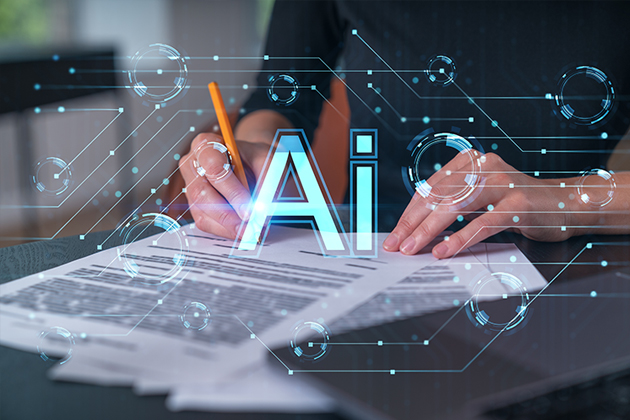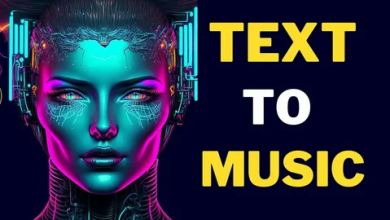
Artificial intelligence (AI) is reshaping industries—and contract law is no exception. From intelligent drafting tools to automated enforcement, AI is transforming how businesses create, negotiate, and monitor agreements. For organisations and individuals alike, especially those seeking legal advice in Hastings, understanding this shift is essential.
This article explores how AI is impacting the traditional contract lifecycle and what legal professionals, businesses, and consumers should know to adapt effectively.
Image credit: Pexels
Drafting Contracts with AI Support
AI-driven platforms can generate contract templates based on user input and common clauses. These tools leverage natural language processing (NLP) to understand legal language and suggest appropriate terms based on the purpose, parties, and jurisdiction.
What used to take hours of legal drafting can now be completed in minutes with automated clause selection and risk flagging. Lawyers are still essential for oversight, but AI increases efficiency and consistency.
Tools like Juro and ThoughtRiver are being adopted across sectors to streamline internal workflows and reduce contract backlog.
Customisation and Risk Management
One of the major benefits of AI-assisted drafting is its ability to flag potential risks before a contract is finalised. Algorithms can detect vague terms, missing clauses, or conflicting obligations.
This pre-emptive guidance allows teams to address issues proactively rather than reactively. For SMEs without in-house legal departments, AI offers a safety net against common drafting errors.
It’s important to remember, however, that context and nuance still require human judgment. As noted by the Law Society, AI is a tool, not a replacement for legal analysis.
Negotiation and Collaboration Tools
AI also supports contract negotiation. Some platforms provide real-time edits and version control, reducing email chains and improving transparency.
By identifying contentious clauses early, AI helps streamline discussions. This is especially useful in multi-party agreements where contract changes can become complex.
Integration with cloud-based systems like DocuSign further enhances collaboration while maintaining data integrity.
Enforcing Contracts Through Smart Monitoring
Once a contract is signed, the enforcement phase begins. Traditionally, this required manual monitoring of deliverables, deadlines, and breach conditions.
AI now enables smart contract tracking. Some tools can read calendar events, invoice data, and system logs to alert users to upcoming obligations or missed milestones.
These systems are particularly useful for recurring contracts, lease agreements, and service-level agreements (SLAs), where consistency is critical.
Image credit: Pexels
Smart Contracts and Blockchain
Smart contracts are digital agreements stored on a blockchain. They automatically execute once predefined conditions are met. While more common in cryptocurrency environments, they are gaining traction in real estate, insurance, and logistics.
The Open Data Institute has explored how smart contracts can support data transparency and reduce fraud in complex supply chains.
Though efficient, smart contracts raise legal questions about enforceability, dispute resolution, and jurisdiction. Traditional contract law still governs the interpretation of these agreements.
Data Protection and Confidentiality
AI tools require access to significant volumes of data to function effectively. This raises questions about data privacy, especially when handling confidential contracts or sensitive commercial terms.
UK organisations must comply with the Data Protection Act 2018 and the UK GDPR when using AI solutions. It’s crucial to assess how contract data is stored, processed, and shared.
Legal advisors should conduct due diligence on vendors and include appropriate data handling clauses in procurement agreements.
Ethical and Legal Considerations
The integration of AI into contract law introduces new ethical questions. If a contract is generated by AI and contains misleading terms, who is accountable? What if the AI system was biased in its clause selection?
The Ada Lovelace Institute emphasises transparency and fairness in algorithmic decision-making. These values should guide AI adoption in legal processes.
Legal professionals must maintain oversight and avoid over-reliance on automated tools. Ethical training for staff using AI in legal contexts is strongly advised.
Legal Training and Adaptation
Lawyers and legal departments need to upskill in AI literacy. Understanding how these systems function enables professionals to supervise AI outputs effectively.
Institutions like the Chartered Institute of Legal Executives (CILEX) are developing resources and courses focused on legal technology.
Firms that embrace continuous training will be better equipped to navigate regulatory challenges and technological disruption.
The Role of Human Judgment
Despite these advances, AI still lacks the capacity for empathy, moral reasoning, and contextual insight. Human solicitors remain essential in interpreting law, advising clients, and resolving disputes.
AI is most powerful when paired with human oversight. It enhances decision-making—but does not replace it.
Clients benefit most when legal professionals combine efficiency with critical thinking and personal connection.
Preparing for the Future of Contracts
Organisations should begin integrating AI thoughtfully. Start with low-risk contracts and gradually scale up. Always involve legal advisors in the process.
Ensure compliance with privacy, transparency, and bias prevention standards. Use AI to support—not sidestep—your duty of care.
By adopting a balanced approach, businesses can streamline operations while safeguarding legal integrity.
Final Thoughts: Empowering, Not Replacing
AI is changing how we draft and enforce contracts, but it’s not here to replace legal professionals. Instead, it empowers them to work smarter, reduce errors, and focus on higher-value tasks.
With the guidance of expert legal advice in Hastings, businesses and individuals can use AI tools with confidence, knowing they remain rooted in sound legal practice.
Please note this article is for informational purposes only and does not constitute legal advice. For personalised guidance on contract law or AI technology, always consult a qualified solicitor.







